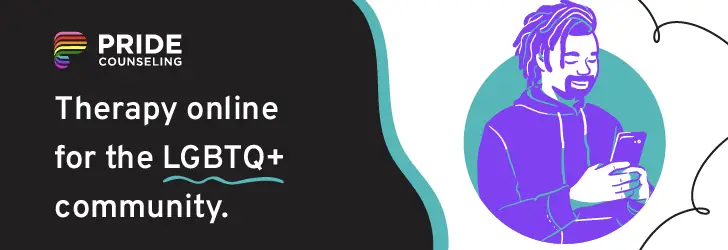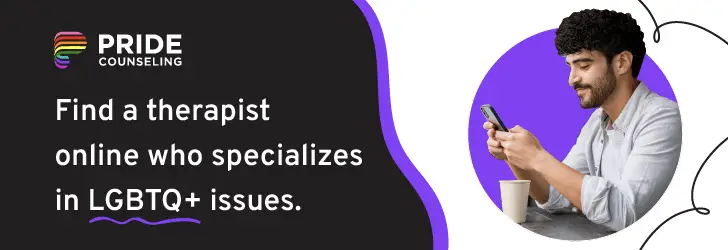As a BetterHelp affiliate, we receive compensation from BetterHelp if you purchase products or services through the links provided
Sexuality is a colorful tapestry, rich with unique threads that tell the diverse stories of human experiences. Among those threads is demisexuality, a sexual orientation that’s been stepping into the spotlight lately. For demisexual individuals, sexual attraction is like a finely aged wine; it requires a deep emotional bond to blossom fully. It’s not a one-size-fits-all experience; it’s deeply personal and varies from person to person.
Kissing, that universal symbol of affection becomes a multi-layered expression for demisexuals. While some see a kiss as a simple act, for demisexuals, it carries a kaleidoscope of meanings that often pivot around the emotional connection with their partner. A kiss isn’t just a kiss; it’s an expression of an intimate bond cultivated over time and emotionally charged.
Key Takeaways
- Demisexuality is Emotional: Sexual attraction for demisexuals isn’t an on-the-spot event; it’s a slow-burning fire fueled by emotional closeness.
- The Spectrum of a Kiss: For a demisexual individual, a kiss can be a mere ripple or a profound emotional wave, depending entirely on the depth of connection with their partner.
- Shattering Stereotypes: Understanding the intimate needs and experiences of demisexual individuals can go a long way in breaking down misconceptions and fostering an atmosphere of acceptance.
By unpacking the intricate dynamics of demisexual kissing, we broaden our understanding of human intimacy and challenge mainstream dating norms. This isn’t just about a kiss; it’s about redefining intimacy in a way that honors emotional depth, nuanced experiences, and the beautifully complex spectrum of human sexuality.
 Understanding Demisexuality
Understanding Demisexuality
Demisexuality falls within the wide spectrum of sexual orientations. As a demisexual, you may not experience primary sexual attraction based on physical appearance without a strong emotional bond. Once an emotional connection is established, you may become attracted to your partner.
Though demisexuality has similarities to asexuality, they are not the same. While asexual individuals don’t tend to experience sexual attraction, demisexuals need that emotional connection to spark their attraction. It is essential to understand and respect these nuances when discussing sexual orientation.
Here are some key aspects of demisexuality:
- Emotional connection is vital: A strong emotional bond is the catalyst for sexual attraction for demisexuals; physical appearance plays a lesser role.
- It is not a choice: Like any other sexual orientation, demisexuality is an intrinsic part of an individual’s identity.
- Communication is key: As with any relationship, open communication about desires and boundaries is crucial for demisexuals and their partners.
Remember, everyone’s experience of their sexuality is unique, so understanding the fundamentals of demisexuality can greatly help empathize with those identifying as demisexual.
Do not forget all sexual orientations are valid, and it’s important to maintain a friendly, open-minded approach when discussing others’ experiences. Demisexuality adds more complexity and beauty to the wide realm of human sexuality.
 Demisexual and Other Orientation Identities
Demisexual and Other Orientation Identities
As a demisexual, you may be curious about how your identity fits in with other sexual orientations. Understanding these identities can bring clarity to your experience and foster understanding and empathy for others. Let’s explore some specific orientations that might be of interest:
- Asexual (or Asexuality): If you identify asexual, you generally experience little or no sexual attraction to others. This doesn’t mean you can’t form close emotional bonds – it just means that sexual attraction isn’t a driving force in most of your relationships.
- Bisexual: Bisexual individuals are attracted to people of more than one gender. This could mean being attracted to both men and women or potentially even more gender identities. Remember that attraction can vary greatly between individuals – there’s no one-size-fits-all definition.
- Pansexual: Pansexuality is similar to bisexuality because it involves attraction to multiple genders but is a little more inclusive. Identifying as pansexual often means that one is attracted to people based on their personality rather than focusing primarily on their gender.
- Graysexuality refers to those who fall somewhere between asexuality and other sexual orientations. Graysexual individuals might experience sexual attraction occasionally or under specific conditions. It’s important to remember that everyone’s experience is unique.
- Gay: Gay individuals are attracted to people of the same gender. This term is often associated with men attracted to other men, but it can apply to any gender identity.
Understanding and respecting various sexual orientations helps you form stronger, more empathetic connections with others. By learning about different identities, including demisexual, asexual, bisexual, pansexual, graysexual, and gay, you deepen your self-awareness and contribute to a more inclusive and accepting world. Remember, everyone’s experience of their sexuality is unique – embracing our individuality makes the world richer and more diverse.
Demisexual and Gender
When discussing demisexuality, it’s important to consider its relationship with gender and gender identity. Demisexuality is not exclusive to any particular gender and can be experienced by individuals identifying as male, female, or non-binary. Let’s explore how demisexuality interacts with different gender identities.
For males who identify as demisexual, their experience might be different from the stereotypical expectations associated with masculinity. Society often expects men to be more aggressive or assertive in pursuing romantic partners. However, a demisexual male may need time and emotional connection before feeling comfortable or interested in a physical relationship.
On the other hand, demisexual females may experience societal pressure to be more emotionally available and supportive in their relationships. This may cause challenges since demisexuality often requires a deep emotional bond before sexual attraction occurs, potentially leading to misunderstandings or misconceptions.
Non-binary individuals who aren’t strictly male or female can also experience demisexuality. They may feel pressure to conform to societal norms related to gender, such as expectations in dating and pursuing relationships. The journey for a demisexual non-binary person might involve navigating their unique path towards love and partnership.
Here are some tips to help you support and understand demisexual individuals of all gender identities:
- Be patient and understanding: Building emotional connections takes time, and each demisexual person’s timeline differs.
- Respect their boundaries: Demisexual people may have different comfort levels regarding physical touch and intimacy. Always ensure consent before engaging in any physical contact.
- Encourage open communication: Discussing feelings, boundaries, and experiences can help promote a deeper understanding between you and your demisexual partner or friend.
In conclusion, demisexuality is a diverse and complex topic that transcends gender boundaries. By being more inclusive and empathetic, you can foster meaningful connections and support the well-being of demisexual individuals of all gender identities.
Demisexual and Relationships
Navigating relationships as a demisexual can be a unique and fulfilling experience. Your connection approach may differ, but it is just as valid and full of potential for deep, meaningful bonds.
As a demisexual, you may require an emotional bond before experiencing romantic attraction. This often means that your relationships begin as platonic friendships. It’s essential to embrace this process and recognize that it can lead to more satisfying romantic connections in the long run.
Communication is vital for you and your partner when embarking on romantic relationships. It’s essential to discuss your demisexuality and what it means for your relationship. This can include:
- The need for strong emotional connections before feeling romantic attraction
- Boundaries surrounding physical touch and intimacy
- The importance of a solid friendship base before pursuing romance
Regarding marriage, it’s crucial to remember that every relationship is unique. For some demisexuals, marriage might be an important milestone to validate your commitment to your partner. For others, it might not hold as much significance. Ultimately, it’s essential to understand and respect your stance on marriage and ensure you remain true to your values and desires.
Some key takeaways for demisexuals navigating relationships include:
- Embrace the importance of platonic friendships as the foundation of your romantic relationships.
- Communicate openly with your partner about your demisexuality and boundaries.
- Remember that every relationship is unique and that there is no single “right” way to approach marriage or commitment. Stay true to your values and desires.
By recognizing and communicating your demisexual identity, you can enjoy meaningful, fulfilling relationships that align with your emotional needs and personal values.

Kissing in Demisexuality
When it comes to demisexuality, the act of kissing can hold a unique meaning. As a demisexual, you may experience sexual attraction only after forming an emotional connection with someone. This can make kissing more than just a casual expression of affection.
For some demisexuals, they may not even experience a genuine desire to kiss someone until there is a strong emotional bond. It’s important to remember that everyone’s experience with demisexuality differs, and your approach to kissing might differ from others who identify similarly.
Kissing can be used to express your emotions and build intimacy. As a demisexual, you might find yourself:
- Using kissing as a way to flirt and gauge the other person’s level of interest
- Feeling more comfortable and open to kissing after getting to know someone deeply
- Experiencing mixed feelings about sex while enjoying intimate kissing as a separate form of expression
To ensure a positive experience, communication is essential. It’s important to be honest with your partner about your demisexuality, attraction, and feelings surrounding kissing. Here are a few tips that might help:
- Discuss your boundaries and limitations before engaging in physical intimacy, including kissing.
- Be open about your feelings, whether about enjoying a kiss or feeling uncertain about moving forward.
- Don’t be afraid to take things slow and focus on building an emotional foundation before exploring the physical aspects of a relationship.
Remember, your experience with demisexuality is unique, and there is no right or wrong way to approach kissing. By being open, communicative, and true to yourself, you can navigate your path to a fulfilling and comfortable intimate experience.

Demisexual and Dating Culture
Dating can be challenging for demisexual individuals, as forming a strong emotional connection takes time and patience. In today’s fast-paced dating culture, apps like Tinder and online dating platforms may not always cater to the unique needs of demisexual people. Don’t worry; navigating the modern dating world as a demisexual is certainly possible, and we’re here to help with some friendly advice.
To begin with, be open about your demisexuality on your dating profiles. This transparency helps set expectations early on and may attract like-minded individuals or those open to developing a deeper connection over time. If you’re using dating apps, seek out those focusing on lasting relationships, such as OkCupid or Hinge, where profiles allow for more in-depth self-expression.
As you participate in the dating culture, remember to prioritize communication. Be honest and encourage your potential partners to express themselves openly. Sharing your demisexual identity may contribute to authentic conversations and foster trust.
Here are some useful tips for dating as a demisexual:
- Be open about your demisexuality from the start
- Try using dating apps and online platforms that prioritize lasting relationships
- Prioritize communication and honest conversations
- Look for social events and activities where you can connect with others on a deeper level
- Always trust your instincts and take your time in developing connections
In summary, dating as a demisexual in today’s culture may require extra effort and open communication, but meaningful connections can be found. Embrace your demisexuality, be patient, and allow yourself the time to form lasting bonds with potential partners.
Challenges and Misconceptions
As a demisexual, you might encounter several challenges and face misconceptions regarding your kissing preferences. One common misconception is that demisexuality is merely a phase or a fad. In reality, demisexuality is a valid identity on the sexuality spectrum and neither a phase nor a fad. Demisexual individuals often experience sexual attraction only after forming deep emotional connections.
The queer community can sometimes be misunderstood, with some people incorrectly assuming that all queer individuals are actively seeking casual sex. However, this is not the case, as your sexuality might not align with the typical expectations surrounding casual physical intimacy.
As a demisexual, you may experience different levels of sexual desire depending on the emotional bond you’ve formed with someone. This can make navigating casual encounters where kisses might be expected tough. Keep in mind that you have the right to express your sexuality according to your preferences and comfort:
- Be open about your demisexuality: You can establish boundaries and ensure mutual understanding by being honest with potential partners.
- Respect your feelings: Listening to your emotions and not feeling pressured into kissing someone without a strong emotional bond is essential.
- Educate others: Address misconceptions and challenge stereotypes that can harm demisexual individuals.
Remember, being demisexual is a part of your identity and something to be embraced. Recognize the misconceptions and challenges you may face, and remember that support is always available from others who understand and respect your experiences.
Demisexual Social Aspects
When navigating the world of demisexuality, it’s important to consider the social aspects that come into play. Building connections with others can be a unique experience for demisexual individuals, especially regarding kissing and physical intimacy.
Demisexual Forums and Resources
As a demisexual, you might find it beneficial to seek out forums and resources catering to individuals with similar experiences. These platforms can offer valuable insights and help you build a supportive network. Engage in discussions, share advice, and seek guidance from fellow demisexuals or allies.
Allies and Patience
Having an ally by your side can make a significant difference in embracing your demisexual identity. Encourage open communication with friends and romantic partners about your needs and feelings. Help them understand the importance of emotional connection before getting physically close. Remember, patience is key when building relationships rooted in understanding and trust.
Intellect and Emotional Intelligence
Your intellect and emotional intelligence play a crucial role in demisexual connections. Foster these qualities to communicate effectively, empathize with others, and navigate emotions linked to demisexuality. As a result, you’ll strengthen your relationships and ability to support loved ones who share your experiences.
Connecting on a Deeper Level
For demisexual individuals, true connections involve more than physical attraction; it’s about establishing an emotional bond. Therefore, invest time in getting to know the other person by engaging in intellectually stimulating conversations. This deeper connection will foster a foundation for more intimate connections like kissing.
Remember to:
- Engage in online forums and explore helpful resources.
- Encourage empathy and patience in your relationships.
- Foster your intellect and emotional intelligence.
- Prioritize emotional connections over physical intimacy.
Demisexual and Mental Health
As a demisexual, your unique connection to physical intimacy may impact your mental health. Understanding how demisexuality and mental health interact can help you navigate relationships and personal well-being more confidently.
Regarding demisexual individuals, emotional connections play a crucial role in creating attraction. Experiencing a strong, deep bond with someone may lead to a desire for physical closeness, like kissing. While this can result in fulfilling relationships for many, it may also cause feelings of confusion, isolation, or invalidation if you don’t share the same perspective as others around you.
The role of communication.
Effective communication is key for demisexuals to maintain positive mental health:
- Be open with your partners about your orientation and preferences.
- Discuss boundaries regarding physical intimacy and emotional connections.
- Share any feelings of inadequacy or apprehension you may experience due to demisexuality.
By addressing these topics, you can better understand your needs and those of your partner(s), alleviating internalized stress and creating a healthier emotional environment.
Social support.
Maintaining a strong support system is essential for mental health:
- Surround yourself with understanding friends and family who respect your identity.
- Join online or in-person groups for people who share your sexual orientation or similar experiences.
- Engage in open discussions with others about demisexuality, mental health, and self-care strategies.
Building a support network can help you feel less alone and more understood, improving your mental well-being.
Managing anxiety and stress.
Healthy coping mechanisms can assist in managing mental health concerns related to demisexuality:
- Develop relaxation techniques like deep breathing exercises, meditation, or yoga.
- Engage in hobbies and activities that bring you joy and help you feel connected to yourself and others.
- Reach out to professional therapists or counselors familiar with demisexuality, if needed.
Finding ways to manage anxiety and stress effectively can improve your mental health, making building and sustaining meaningful connections easier.
Key Takeaway: Demisexuality and mental health are interrelated, with effective communication, social support, and healthy coping mechanisms instrumental in promoting mental well-being. By prioritizing these aspects, you can navigate the unique challenges of being demisexual and live a more balanced, fulfilling life.
 Recognizing When Therapy Is Essential for Demisexual Individuals
Recognizing When Therapy Is Essential for Demisexual Individuals
When you’re demisexual, the emotional weight of navigating relationships differently can sometimes escalate into chronic stress or anxiety. That’s your cue to consider professional help. Here are some red flags signaling that therapy might be beneficial for demisexual individuals:
- Demisexual Emotional Drain: If you’re constantly exhausted trying to form or explain your unique emotional and sexual bonds, that’s a sign.
- Attraction Anxiety: The heightened worry about how and when you’ll form the emotional bonds necessary for attraction could be affecting your well-being.
- Communication Gaps: Repeated misunderstandings or conflicts about your demisexual orientation and needs with your partner could indicate deeper issues.
- Isolation by Orientation: If you’re feeling especially isolated or disconnected due to your demisexuality, don’t underestimate the toll it takes.
- Orientation-Based Mood Swings: If you experience volatile mood changes tied to struggles with your demisexuality, consider it a sign.
- Self-Invalidation: Constantly questioning the legitimacy of your demisexual orientation or feeling invalidated by societal norms could point to the need for therapy.
 Charting Goals and Celebrating Progress in Demisexuality-Focused Therapy
Charting Goals and Celebrating Progress in Demisexuality-Focused Therapy
As you venture into therapy tailored to your demisexual orientation, setting achievable goals and markers of progress can guide you through. Here are some ways to keep track:
- Orientation-Centric Goals: Specific goals focus on improving aspects of your life affected by demisexuality, like emotional connectivity or anxiety relief.
- Demisexual Milestones: Reflect on and celebrate the moments when forming emotional bonds no longer feels like climbing Everest.
- Authentic Expression: As a demisexual, take note when conversations about your orientation and intimate needs become easier and more genuine.
- Self-Acceptance Gains: Revel when you feel more at ease with your demisexual identity, internally and in social settings.
Therapeutic progress is not a sprint; it’s more of a lifelong marathon. Each step forward is an achievement in the intricate dance between your demisexuality and mental health. So, give yourself a pat on the back whenever you can; you’re doing great!
Looking for a Potential Partner
When you’re demisexual, finding a suitable partner to share intimacy, including kissing, might be a bit different than for others. Here are some factors to consider when looking for a potential partner:
1. Physical attraction: Understand that physical attraction may not be your driving force when choosing a partner. Demisexuality often means that emotional connection takes precedence over appearance. So, prioritize finding someone you feel connected with on a deeper level.
2. Appearance: While physical attraction might not be the main factor, appearance still plays a role in finding a potential partner. Look for someone whose looks are pleasing to you, but don’t be swayed by mere physicality.
3. Smell: Our sense of smell strongly influences our attractions. Pay attention to your potential partner’s natural scent, as it can indicate compatibility on a subconscious level.
Here are some tips on how to find such a potential partner:
- Attend social events to meet new people and engage in deep conversations. This way, you’ll have a better chance of finding someone you can connect with emotionally.
- Online platforms dedicated to demisexuality or specific interests can provide a safe space to connect with like-minded people who share your preferences.
- Open communication is crucial in any relationship, especially for demisexual individuals. Let potential partners know about your needs and preferences, and listen to theirs to establish a healthy emotional bond.
Remember, as a demisexual person, your journey in finding a potential partner might be a bit different than others, but don’t let that discourage you. Focus on forming strong emotional connections and pay attention to your senses, and you’ll find your path to an intimate partnership.

Demisexual and Polyamory
Demisexual individuals often find themselves on a unique journey within the sexuality spectrum, and navigating polyamorous relationships can be an important part of understanding their desires and boundaries. As you explore your demisexual identity and consider entering a polyamorous relationship, remember some key aspects that can help you balance your personal needs with the dynamics of multiple connections.
One key aspect of demisexuality is building strong emotional bonds before experiencing sexual attraction. In a polyamorous setting, forming those connections with each partner might take longer. Give yourself the time and space to develop those emotional connections without feeling rushed or pressured.
Polyamory can offer a variety of relationship structures for everyone involved. As a demisexual person, you may want to consider the following:
- Establish open communication: Effective communication is crucial in any relationship, especially polyamorous ones. Ensure all partners know your needs as a demisexual; this will likely foster understanding and support.
- Set personal boundaries: Know your limits and communicate them to your partners. This helps everyone to respect and acknowledge their individual needs.
- Be patient: Developing emotional connections requires time and effort, so allow yourself the opportunity to get to know each partner individually.
Remember that the concept of demisexuality exists on a spectrum, and your experience might differ from others. Here are some terms that might help you understand your own demisexual identity in the context of polyamory:
- Aromantic: People who experience little or no romantic attraction toward others.
- Biromantic: Individuals who are romantically attracted to both men and women.
- Heteroromantic: Those who experience romantic attraction to the opposite gender.
- Homoromantic: People who are romantically attracted to their gender.
- Panromantic: Those who experience romantic attraction to people regardless of their gender identities.
With these concepts in mind, you can navigate polyamorous relationships while staying true to your demisexual identity. Remember, self-awareness and open communication pave the way for a fulfilling and authentic connection with yourself and your partners.
Explore Pride Counseling—Heal Your Demisexual Heart Today
Explore Your Demisexuality with Pride Counseling: An Affiliate Recommendation
Navigating the complexities of demisexuality can sometimes feel like a solitary journey. But guess what? You’re not alone, and specialized help is just a click away. That’s where Pride Counseling comes into play, offering tailored therapy services that specifically focus on LGBTQ+ and demisexual issues.
Full disclosure here: I’m an affiliate with Pride Counseling, meaning I earn a commission if you use their services through my link. But here’s the thing—I only recommend what I genuinely believe could benefit you.
Why Pride Counseling?
Pride Counseling provides a safe online space to openly discuss your unique orientation, relationship complexities, and any mental health concerns connected to your demisexuality. Their therapists are qualified professionals well-versed in the nuances of different sexual orientations, including demisexuality.
What Makes It Different?
Unlike general therapy services, Pride Counseling focuses on issues relevant to the LGBTQ+ community and by extension, demisexual individuals. That targeted expertise can make all the difference when grappling with attraction anxiety, identity questions, or emotional bonding challenges.
Tailored to Your Needs
You can chat via text, video call, or even over the phone, offering a convenient, adaptable approach to mental health. It’s like a one-stop shop to tackle all those intricate demisexuality-based questions or worries you’ve grappled with.
So, if you’re looking to make sense of your emotional landscape as a demisexual or even just aiming for a clearer understanding of your identity, Pride Counseling could be your next go-to resource. Click through my affiliate link if you’re keen, and let’s journey this path of self-discovery together.
Get Expert Help for Your Unique Needs
Frequently Asked Questions
How can a demisexual know if they’re ready for a first kiss?
As a demisexual person, it’s essential to understand your emotions and the connection you’ve established with your partner. You may know you’re ready for a first kiss if:
- You feel comfortable and at ease with the person.
- You’ve formed a strong emotional bond.
- You trust them and feel safe in their presence.
- Your desire to kiss them is genuine, not due to societal expectations.
Everyone is different, so self-reflecting and being conscious of your feelings and boundaries is crucial.
Do demisexuals typically kiss on the first date?
While some demisexuals may be comfortable kissing on the first date, requiring more time to form a strong emotional connection is more common. It’s essential to maintain:
- Open communication with your date about your desires and boundaries.
- Respecting each other’s comfort levels.
- Allowing the relationship to progress at a pace that suits both parties.
How long does it take for demisexuals to develop attraction?
There’s no specific timeline for a demisexual person to develop attraction. Factors such as:
- The degree and depth of emotional connection.
- Personal history and experiences.
- Levels of trust and vulnerability.
…can impact the amount of time it takes to develop these feelings. It’s important to be patient and let the relationship evolve naturally.
Can demisexuals enjoy casual relationships?
While casual relationships may not be as fulfilling to some demisexuals due to the lack of emotional connection, it is still possible to enjoy them. Tips for navigating casual relationships for a demisexual include:
- Having open discussions about intentions and preferences.
- Ensuring mutual understanding and respect.
- Assessing if the emotional aspect can be satisfied, even in a casual setting.
How can you tell if a demisexual person is interested in you?
When a demisexual person is interested in you, they might:
- Prioritize spending quality time with you.
- Express a desire to deepen the emotional connection.
- Open up about personal experiences and vulnerabilities.
- Show a heightened level of trust.
It’s essential to have an open dialogue, focusing on emotional exploration and a mutual understanding of feelings.
Is it possible to be asexual but still enjoy kissing?
Yes, it is possible to be asexual and still enjoy kissing. Asexuality focuses on one’s lack of sexual attraction to others, but it doesn’t necessarily negate the enjoyment of physical touch or connection, like kissing. It boils down to individual preferences and comfort levels.
Jacob Maslow: Unveiling the Depths of Intimacy, One Emotional Layer at a Time
Hey there, I’m Jacob Maslow, and my life has been an intricate tapestry woven with threads of emotional complexity and hard-won wisdom. As someone who leans demisexual, intimacy for me isn’t just skin-deep; it’s soul-deep. This tendency has led me through the nuanced landscape of human connections and the varying ways we experience attraction.
My life chapters include a cocktail of highs and lows. Mental health? I’m a therapy veteran who navigated those stormy seas with Lexapro as my anchor. When facing the monsters in the closet, I’m your guy. Speaking of which, I’ve been through the wringer with a narcissistic ex. She could win an Oscar for her smear campaigns, and co-parenting has been more of a court saga than a collaborative effort. Yet, it’s these hardships that fuel my resolve to help others.
Every day, I take incredibly long walks to clear my mind; think of it as daily mental flossing. The solitude often serves as a springboard for my mental health and narcissism articles. My aim? To be a compass for those in relationships with narcissistic partners or grappling with mental health issues. I truly believe that no matter how twisted the maze is, there’s always a way out.
Aside from penning articles that I hope act as lifebuoys, I run a legal site to assist people trapped in toxic spousal battles, particularly those that revolve around custody. Trust me, if you’re battling a partner who weaponizes kids instead of co-parenting, you’re not alone, and I’m here to help.
So, if you’re interested in diving deep into the multifaceted world of human emotions and complex relationships, you’re in the right place. Buckle up; it’s going to be an enlightening ride.
- 7 Ideas to Help You Relax and Unwind on a Family Vacation - April 27, 2025
- How Having Cybersecurity Protection Helps You Relax - April 25, 2025
- 8 Reasons Why Spending Time Outside Calms You Down - April 25, 2025
This site contains affiliate links to products. We will receive a commission for purchases made through these links.


 Understanding Demisexuality
Understanding Demisexuality Demisexual and Other Orientation Identities
Demisexual and Other Orientation Identities Recognizing When Therapy Is Essential for Demisexual Individuals
Recognizing When Therapy Is Essential for Demisexual Individuals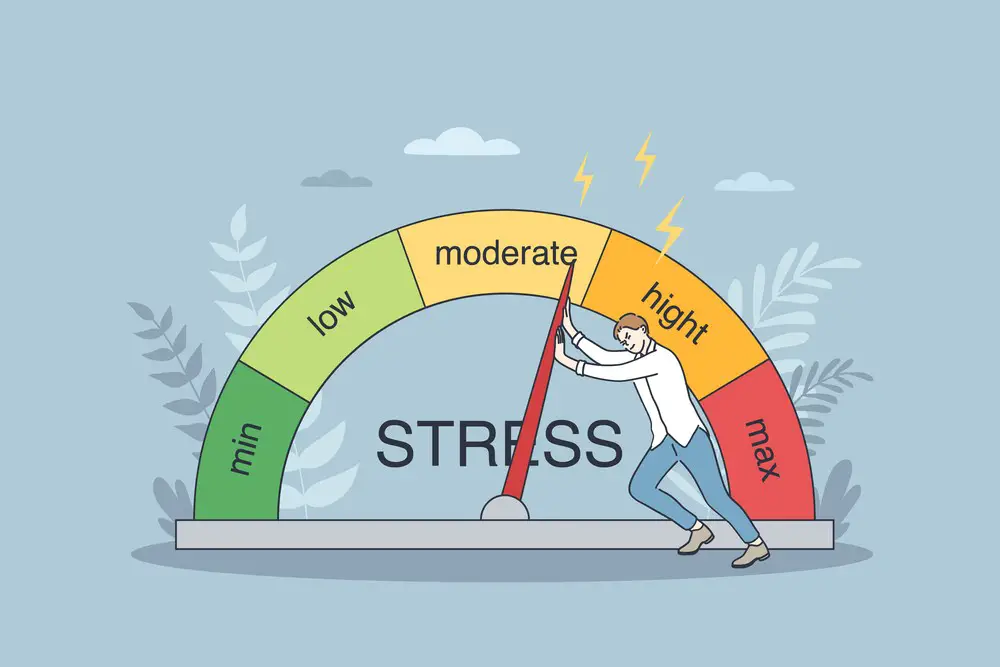 Charting Goals and Celebrating Progress in Demisexuality-Focused Therapy
Charting Goals and Celebrating Progress in Demisexuality-Focused Therapy